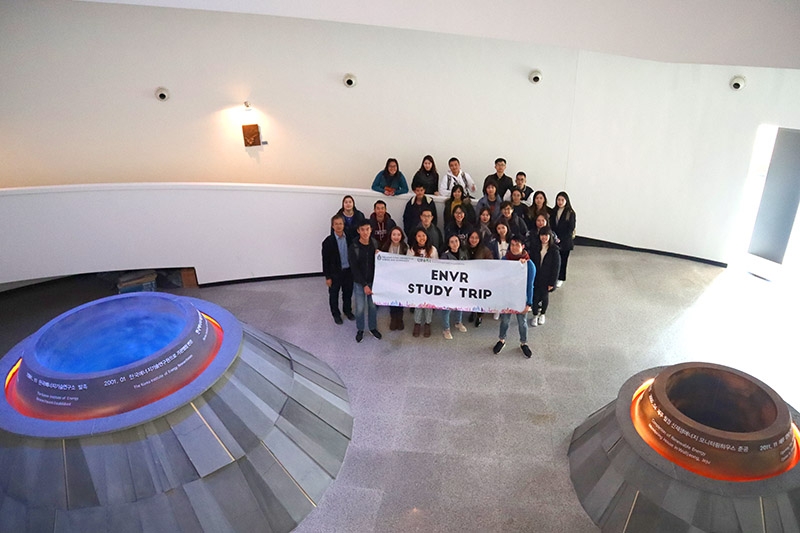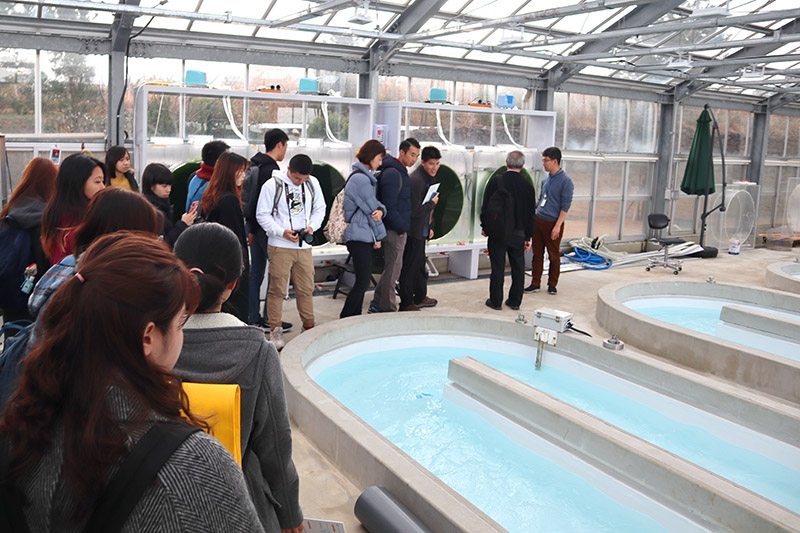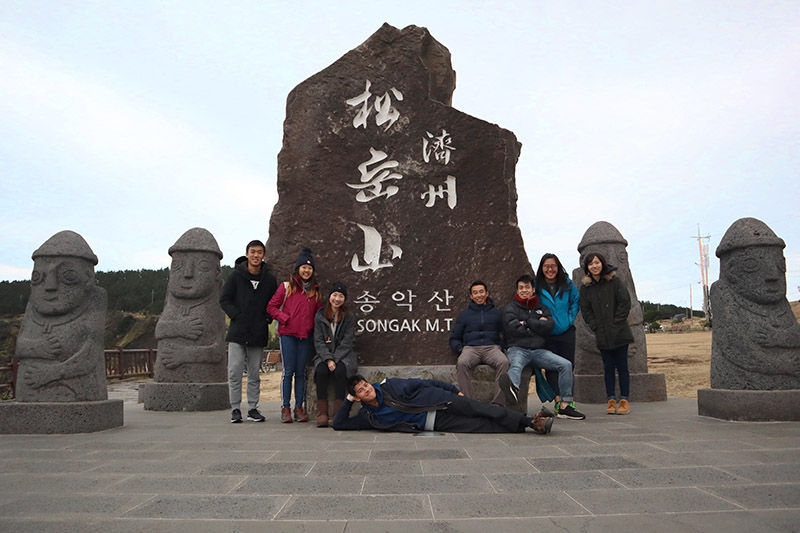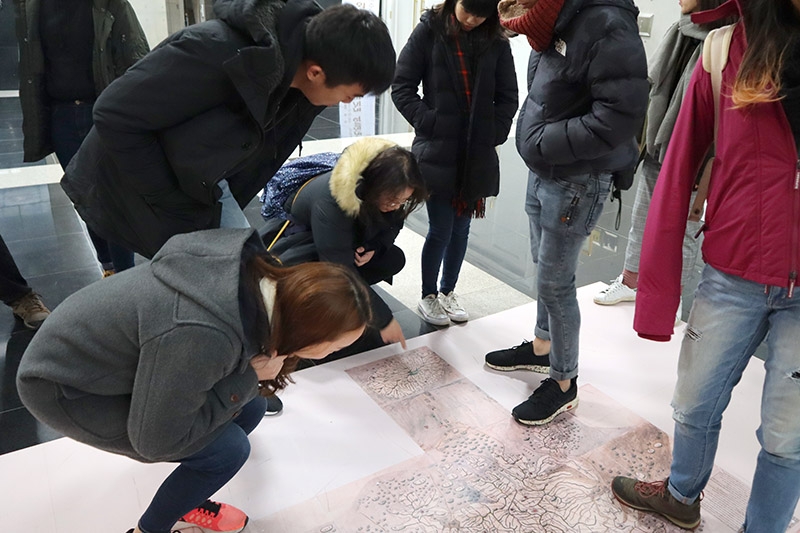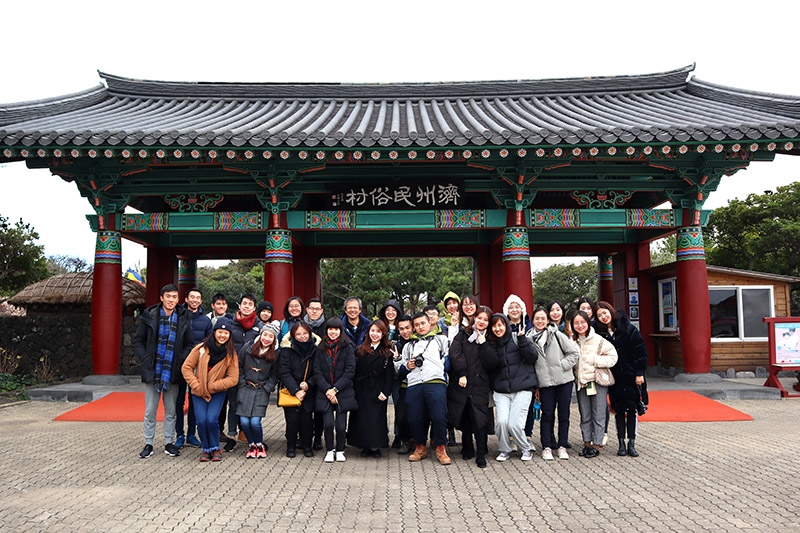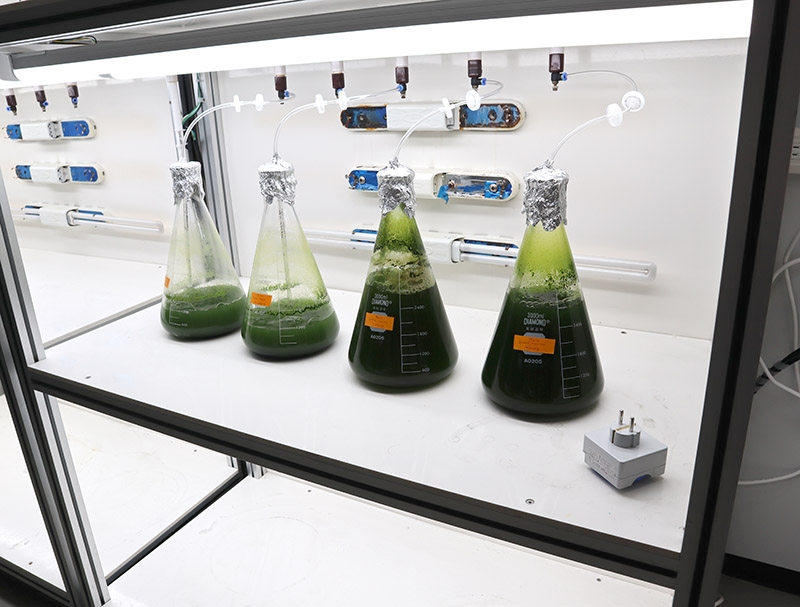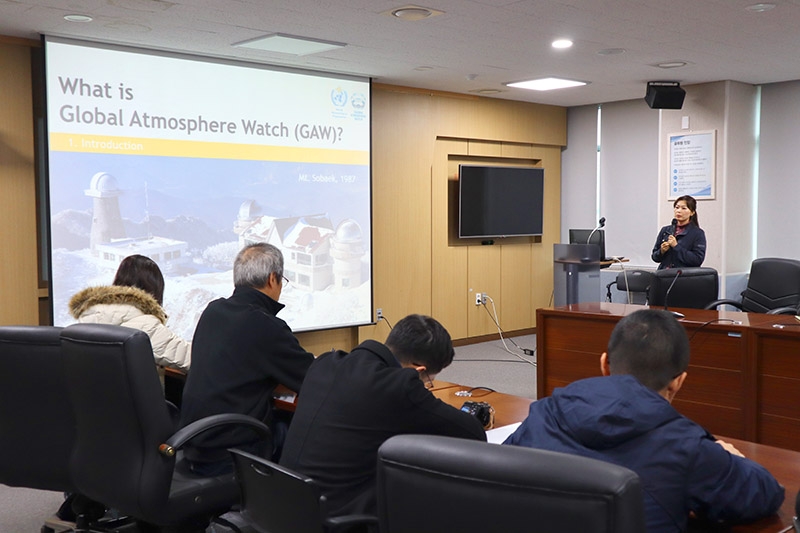#learningwithoutboundaries
Jeju Island, a beautiful island created by a series of volcanic activities, has many long caverns to be explored in the coastal area. With the diverse ecosystems and natural energy resources, Jeju Island is a great choice for natural resources and conservation trip. 4 students of BSc in Environmental Management and Technology Program (EVMT) and 22 students from MSc in Environmental Science and Management Program, led by Prof. Arthur LAU, visited Jeju Island in South Korea from 5 – 10 January 2020 to discover the local natural resources, conservation, learn about the research initiatives in energy and ocean, also explore the beautiful island.
Jeju Island is officially a UNESCO Biosphere Conservation Area, a Marine Ecosystem Conservation Area as of 2002 and an Absolute Retention Coastal Area as decided by the Jeju government in 2007. Students visited Jeju Folklore and Natural History Museum, Jeju Folk Village and several natural spots including Mountain Songaksan, Seongsan, Jusangjeolli Cliffs, Yongduam Rock, Manjanggul Cave, etc. It gave students a better understanding of Jeju’s unique natural resources, biodiversity and ancient culture.
Other than witnessing the amazement of Jeju’s nature, students also visited Jeju Global Research Center of Korea Institute of Energy Research (KIER), Jeju Research Institute of Korea Institute of Ocean Science and Technology (KIOST), Jeju National University and National Institute of Meteorological Sciences.
Jeju Global Research Center of Korea Institute of Energy Research (KIER) aims at improving national wealth and contributing to the improvement of quality of life for the people through conducting energy research and supporting national energy policy in terms of technology development. Students attended the presentations held by the researchers and learnt more about their research on energy efficiency and materials, new and renewable energy, climate change and energy convergence and integration.
Jeju Research Institute of Korea Institute of Ocean Science and Technology (KIOST) is a state-run institution that tasked with discovering new scientific knowledge about the ocean for the benefit of the people. Students exchanged with the researchers of KIOST to learn about how they tried to establish future-oriented port city infrastructure and coastal landscapes by acquiring new knowledge from ocean ecology and resources, onshore and offshore wind farms.
The trip to Jeju Island allowed students to observe and investigate how a coastal city can utilize its geological advantages to improve social living standard by technological development and management. The actual exemplary case study reiterates the importance of interdisciplinary study, so as to address relevant science, technology and policy issues in environmental management and education.

